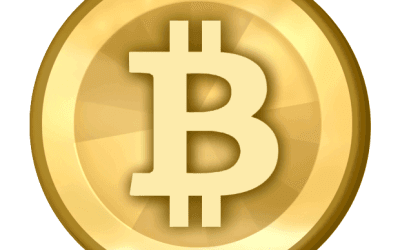The gold standard was hardly perfect, and gold bugs themselves sometimes make silly claims about their favorite former monetary standard. But these things don’t excuse the errors many economists commit in their eagerness to find fault with that “barbarous relic.”
George Selgin
The Sad Model of a Modern Monetary Economist
It isn’t clear that the Fed has brought any substantial improvement in macroeconomic stability.
Robert Samuelson’s Folly of Fed Obeisance
The Fed is a large and aloof agency that needs to be tamed.
A 1920-21 Recovery Myth
The U.S. was able to recover relatively quickly from at least one deep slump despite authorities’ refusal to resort to either fiscal or monetary stimulus.
Free Banking and The Dollar
While I’m all for monetary freedom and competition, I’m also for reforming the U.S. dollar, which for me means freeing it from control by discretionary central bankers.
We Are All Free Banking Theorists Now*
If even economists who’ve never heard of free banking, or who dismiss both it and the people who take it seriously, nevertheless subscribe to some free banking theories of their own, where do their theories come from?
Reforming The Global Financial System: Let Market Forces Play a Greater Role
History shows that, whenever financial institutions, whether domestic or global, have been allowed to develop freely, the results have been far more satisfactory than those from government-designed schemes.
William Jennings Bryan and the Founding of the Fed
William Jennings Bryan, the most stalwart enemy of both private currency and currency monopoly since Andrew Jackson, helped to create a currency monopoly far more powerful than any that Jackson could ever have envisaged, and far more capable of gratifying Wall Street, at the expense of the rest of the nation, than Wall Street alone, left perfectly free from government controls, could ever have devised.
Fedophilia: Irrational Adoration of the Federal Reserve System
Although the movement to “End the Fed” has a considerable popular following, only a very tiny number of economists—our illustrious contributors amongst them—take the possibility seriously. For the rest, the Federal Reserve System is, not an ideal currency system to be...
Intermediate Spending Booms
A number of recent exchanges between Market Monetarists and their critics, and especially those of their critics associated with the Austrian school, have debated the contribution of excessively easy Fed policy toward the housing boom and bust. The issue boils down to...
The Economist On Money and the State
I couldn't help being glad to see The Economist refer to Carl Menger's theory of the origins of money just as I was about to explain that theory to my undergraduate classes. Nor did I at all mind having Menger's ideas contrasted with those of another of my favorite...
The Cobden Survey
In June, 2010 the Cobden Centre in London released a report on "Public Attitudes on Banking," based on a questionnaire to which 2000 Britons responded. The findings of that report have since been offered, both by the Cobden Centre itself and by others, as proof that...
Reply to Salerno on Freedom in Banking
Oh no: I've gone and punched the 100-percent wasp's nest again, and the wasps are responding predictably. Among them Joe Salerno stands out like a hornet among gall wasps, for Joe is an outstanding historian of monetary thought, and no mean monetary economist...
Paper Bugs, or, Stupid Arguments Against Gold
Persons familiar with my writings on monetary reform know that, far from being anyone's idea of a gold bug, and despite my conviction that those monies work best that governments govern least, I've always shied away from arguing that we ought to re-establish a gold...
Is Fractional-Reserve Banking Inflationary?
Certain economists of the Austrian School, and followers of Murray Rothbard especially, oppose fractional reserve banking for at least three reasons. They claim that banks resorting to it defraud people, that they bring about business cycles, and that their activities...
An Austere Recovery: The Swift Recovery from the 1920’s U.S. Recession
How “austerity” measures lead the United States’ rapid recovery from the deep recession into which it sank in the last half of 1920.
Free Banking and Economic Development, Part 2
When Adam Smith first drew attention to the benefits of fractional-reserve banking, those benefits were but a glimmer of far more impressive gains to come. In 1776, the year of the appearance of Smith’s Wealth of Nations, Scotland had only 10 note-issuing banks, the...
Free Banking and Economic Development, Part 1
The most tangible achievements of the free market—the vast improvements in technology and productivity, the industrial plant and infrastructure from which these derive, and the extensive retailing networks that deliver industry’s fruits to consumers—would be far more meager were it not for past and present lending financed by fractionally-backed bank liabilities.
The Folly that is “Local” Currency
How’s this for a great idea: we build a small fleet of cars, and market them to people in the local community. How do we compete with Ford, G.M., Toyota, and all those other huge car companies? Easy. You see, our cars will have special octane requirements that will...
Where’s My Model?
Anyone who peruses my work on free banking—or my other writings for that matter—will notice that I’m not especially inclined to express my ideas mathematically. To put the matter more positively: I prefer plain English. The preference has if anything grown more marked...
Capital and Cash Reserves
I promise to make this my last post for a while concerning the matter of 100-percent versus fractional-reserve banking. However, in addressing some comments on my recent posts it occurred to me that some very serious misunderstanding is at play concerning the...
Subscribe for free.
Latest pro-Capitalism goodness sent weekly to your email box.
No spam. Unsubscribe anytime.




